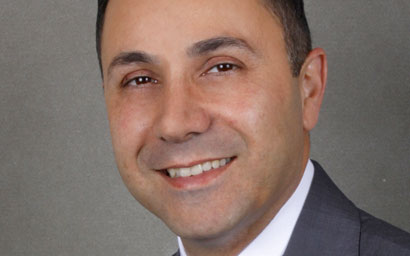The post-financial crisis era in Europe has ushered in a heightened focus on governance risk and transparency for institutional investors, as they seek to optimise their investment processes and stewardship of holdings. Increasingly, asset managers are stepping up their scrutiny of companies in whose shares they invest, seeking deeper insights into areas of potential governance risk-related exposure.
On the face of it, this is no easy task given the scale and complexity of large portfolios and the growing need for investors to monitor governance data. In short, they need to know how their portfolio companies are being run, and they need to know about the people running them. This spans board policy, executive remuneration and alignment with performance, annual meeting management and more.
Given the fast-approaching annual meeting season and the growing sensitivity of executive pay – and with a glance at the growing number of UK listed companies contemplating a binding vote on pay this year – let’s look at some of the questions institutions should be asking about pay and company performance.
Is the company exposed by the pay practices of its board and senior executives? The current tone of activism that we read on a near-daily basis focuses on pay levels, increasingly with a view on capping or linkage between highest and lowest compensation levels within an issuer. It’s vital that investors are able to benchmark company pay against peers, and measure relative performance, but there are other aspects to compensation that also warrant consideration.
Investors need to know whether financial incentives are structured to long-term shareholder value creation, or near-term results; they want to understand whether compensation structures indicate a gender-based pay disparity, and through this expose the company and investor to risk.
At a director level, do the share-issuing company’s executives have sufficient oversight? Good governance demands that directors are not overstretched to the point where their responsibilities could be unduly diluted or compromised, which would not only impact their pay-for-performance ratio but also their contribution to sustainable value creation. Investors need to understand where a director’s duties start and end, and they need insight into ‘interlocks’, a standard business practice where a director serves on the board or management committee of more than one company.
SUSTAINABILITY
In terms of non-financial governance risks, institutions also require insight and visibility. They need to be confident in entrusting directors and executives to build their company on a sustainable foundation based on competence and ethics. They need to feel assured that they are investing in companies that focus on good practices, that take responsibility for the sustainability of success as well as rooting out the cause of any failure. To achieve this, they require in-depth insight into senior-tier executive management.
Then there is the requirement for due insight into board elections, meeting resolutions and proxy voting matters. How well does the company communicate its corporate strategy, its financial results and approach to rewards, and does it empower the investor with sufficient transparency to make well-informed voting decisions at annual meetings?
To navigate these challenges, investors increasingly require timely and accurate access to a range of objective data and analytics to support their investment decision making processes and conduct peer benchmarking.
Demi Derem is general manager, investor communication solutions international at Broadridge
©2017 funds europe





